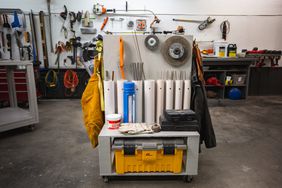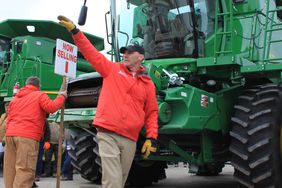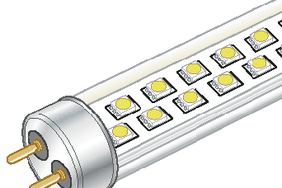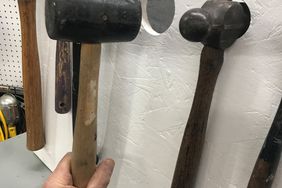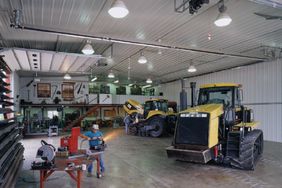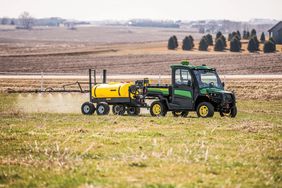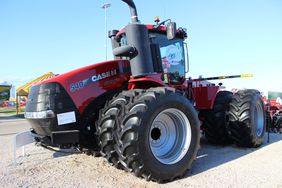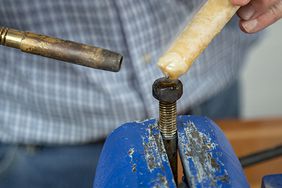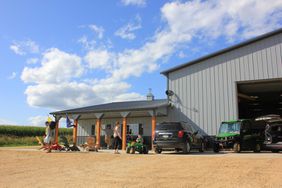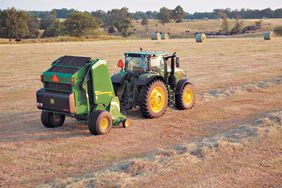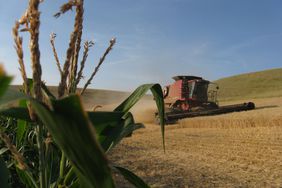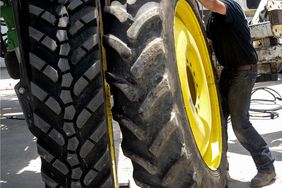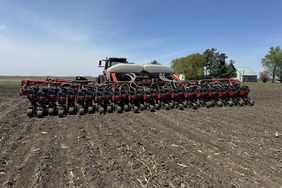:max_bytes(150000):strip_icc()/IMG_2428-2000-854d948b4f5742ab8bfb91c2cc35e3a7.jpg)
Dennis Nelson of Belmond, Iowa, knows from experience that it's always better to build a farm shop bigger rather than keep it moderate in size. He and his three brothers are now working comfortably out of an 80×80-foot shop with 20-foot sidewalls. They built the shop in 2008.
"It's big enough that we can get a couple projects in, but not too big that we get too much going on," says Dennis Nelson. "We wanted to keep it tall enough that we could work on top of the combine and not worry about the height."
The Nelson brothers can fit three tractors and a 36-foot corn head in the Clearspan steel building with some space left to work.
Built To Be Flexible
To easily fit in more equipment or to work on multiple projects, almost everything in the shop has a forklift attachment or is on wheels—making the space very versatile for the farmers.
:max_bytes(150000):strip_icc()/IMG_2421-2000-bce3544c8adc426dbcfb8a33f6af06f5.jpg)
"We can move almost everything except for our stationary car lift that's bolted to the floor," says Neal Nelson. "We don't have to build such a large shop, by today's standards, because we can make this one do more things."
With a 40×20-foot Hydroswing hydraulic door facing the east and two 14×14-foot overhead doors on the south side of the shop, the brothers basically created three service bays to work from. One door has a welding center right inside, which makes it the ideal service bay for any projects involving a welder or plasma cutter.
The welding center has a heavy electricity draw from the shop's single 200-amp electrical box that is expandable.
To keep air lines dry and rust-free, the Nelson brothers ran their air lines under the concrete to directly route the lines into the walls. With in-floor water heat, the lines stay relatively dry in the winter.
A corn furnace is being used to power the shop's heat and is working efficiently for the brothers. Around 600 to 700 bushels of corn will heat it all, but the family also burns old beans, old seed corn that never got used, and other pellet-size grains to keep the shop from ever getting too cold.
:max_bytes(150000):strip_icc()/IMG_2394-2000-bc6bcf4314ed4044a42107c7b846cdf7.jpg)
Icynene foam insulation helps keep the shop climate-controlled. The Nelsons painted the hard foam on the ceiling and used a rubberized root coating on the inside to make the insulation somewhat waterproof. The soft cell form on the walls is covered with steel.
In the future, the Nelsons hope to add a tool room housing a mill, a lathe, and more onto the shop.
"Organization is probably the key," Neal says. "It's a work in progress and will be for several years I'm thinking."
